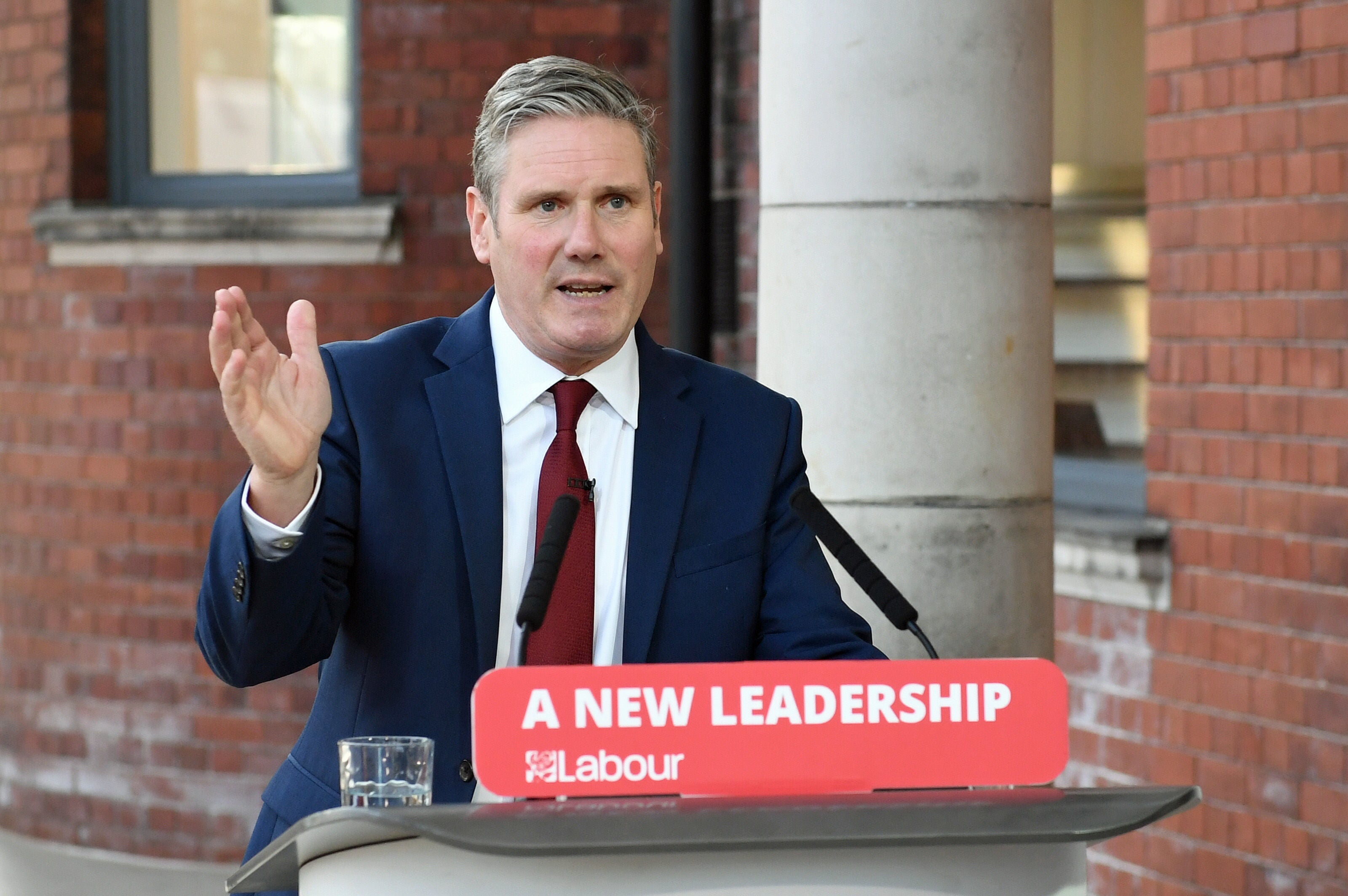Keir Starmer broke decisively with Jeremy Corbyn’s legacy – by not mentioning him
The Labour leader has moved on from his predecessor with surprising stealth and speed, writes John Rentoul


Keir Starmer has achieved the remarkable feat of repudiating everything about Jeremy Corbyn’s leadership – without ever saying so directly, and without even mentioning his predecessor’s name. What was most surprising was that he did so without also provoking the kind of furious denunciation in which Labour’s so-called left specialises.
His first annual conference speech was delivered to an imaginary conference in an empty room in a museum in Doncaster. If there isn’t a metaphor there we writers might as well all give up now. But he delivered it well, with plenty of expression, so that, as we watched online, we forgot that there was no physical audience in front of him.
The other reason we forgot was that the speech itself was interesting enough to hold our attention. He did a good job of saying he had tried to be constructive in his opposition to Boris Johnson, but that the prime minister was just so useless that he wasn’t able to keep it up. He appeared genuinely upset about this: “It makes me angry that, just when the country needs leadership, we get serial incompetence.”
In a surprisingly personal attack, he said: “While Boris Johnson was writing flippant columns about bendy bananas, I was defending victims and prosecuting terrorists. While he was being sacked by a newspaper for making up quotes, I was fighting for justice and the rule of law.”
Anneliese Dodds, the shadow chancellor, had been similarly personal in her attack on Rishi Sunak the previous day, accusing him, a former hedge fund manager, of “profiting from a financial system that took huge risks and then passed them onto ordinary people”.
These attacks on the Tories liberated Starmer and Dodds to sell messages that their own party might otherwise have been less willing to hear. In Dodds’s case this was that she “would ensure that public money was always spent wisely. Targeted where it’s needed most. Not splurged where it isn’t.” (Targeting is something that the Corbyn-led party was against, and “splurging” public money on universal payments, from tuition fees to “free” broadband, something it favoured.)
In Starmer’s case, it allowed him to tell the party: “When you lose an election in a democracy, you deserve to. You don’t look at the electorate and ask them: ‘What were you thinking?’ You look at yourself and ask: ‘What were we doing?’” It was a Blairite formulation, rather at odds with Corbyn’s vain claim to have “won the argument” in the 2019 election.
Starmer didn’t repudiate any of the Corbynite policies that he had sworn to defend during the leadership election; instead, he simply erased them from the record: “The challenges we now face mean that even the questions of 2019 already seem like ancient history.”
It may be that there is more support among Labour members for this Corbyn-heresy than people think, but one of the advantages of delivering a speech to an empty room is that the minority who disagree strongly cannot shout, boo, heckle, hold up placards or quickly find a TV camera outside the conference hall.
Holding a party conference as a series of Zoom lectures is not the only reason that the cries of betrayal have been muted. Many influential Corbynites are urging their comrades to avoid being “oppositionists”, as John McDonnell, the former shadow chancellor, did last week. He told an Italian newspaper: “We mustn't allow ourselves to be isolated in any way, and we mustn't alienate people within the party.”
His assessment is that “the majority of Labour Party members are willing to give Keir Starmer a chance to see how we can really keep the party together”, although they also “don't want any retreat from the radicalism of Jeremy Corbyn”. McDonnell is astute enough to realise that it is the radicalism, not the Jeremy Corbyn, that most Labour members care about. By the time of the 2019 election, most members realised that Corbyn wasn’t the best person to take forward the excitement of nearly winning the election two years earlier. When it came to it, they voted for Starmer because he, rather than Rebecca Long-Bailey, seemed better equipped to take the fight to the Conservatives. It was remarkable that the new leader failed to devote even a paragraph of hypocritical tribute to his predecessor in his first (virtual) party conference speech.
But he got away with it, because his party is ready to move on.




Join our commenting forum
Join thought-provoking conversations, follow other Independent readers and see their replies
Comments